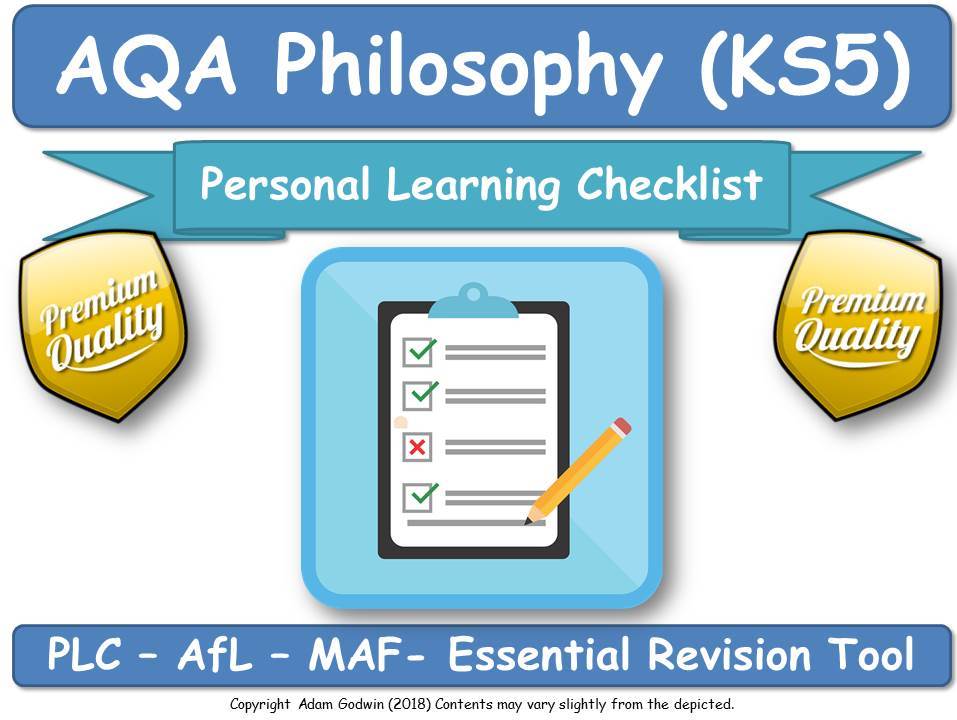Religion, Philosophy, Sociology & Ethics Resource Base
Resources for Religious Studies, Sociology, Philosophy, Ethics and Humanities. We specialise in making whole units and courses for ultimate convenience and time-saving. We always aim to make the best resource for a given topic: our goal is perfection and our resources have helped educate 1 million+ students! In order to encourage ratings and reviews, if you buy any of our products, are happy with your purchase, and leave a 5* rating for it: just email us and we'll send you a free bonus gift!






![Business Ethics (Religious Studies) Revision Session for AS-Level OCR RS (New Spec) [religion,moral]](https://d1e4pidl3fu268.cloudfront.net/2f465823-4223-49e4-9252-e8cb64f835e5/CoverNew.crop_960x717_0,0.preview.jpg)


![The Three Marks of Existence- AS Revision Session for KS5 OCR RS [ Buddhist Thought ] anicca dukkha](https://d1e4pidl3fu268.cloudfront.net/ef00047f-dfdf-4ff5-a023-c6857046df24/CoverBuddhism.crop_960x717_0,0.preview.jpg)
![Buddhism Revision Sessions (x6) [AS-level OCR Religious Studies, New Specification] 6 Lessons Philosophy [ Meditation, Samsara, Taking Refuge, The Buddha, The Four Noble Truths & The Three Marks of Existence - COMPLETE SET - KS5 Exam Preparation](https://d1e4pidl3fu268.cloudfront.net/e240facb-2ef7-4e3a-877b-b3a0a943e07d/CoverNewBundle.crop_957x720_0,0.preview.jpg)

![12 Mark Question Feedback Sheet - AQA GCSE Sociology [ 8192 ] - PEER SELF MAF Assessment DIRT Target](https://d1e4pidl3fu268.cloudfront.net/daf5ed73-1894-469d-aa9b-155a6f686d73/12MARKFEEDBACKSHEETGCSESOCIOLGOY.crop_960x717_0,0.preview.jpg)

![GCSE - Buddhism - Lesson 2 [Dhamma, Three Jewels, Three Marks of Existence] Complete Resources](https://d1e4pidl3fu268.cloudfront.net/118a4067-d401-461e-9fe9-8104a4b4f43c/Lesson2.jpg)
![GCSE - Buddhism -Lesson 14 [Buddhist Meditation, Types of Meditation, Vipassana... ] FULL RESOURCES](https://d1e4pidl3fu268.cloudfront.net/2db896e5-77a2-42c1-8200-1aa5a097ea21/Lesson14.jpg)
](https://d1e4pidl3fu268.cloudfront.net/4e59c58c-57ab-4885-acba-3df1b8594bc1/Lesson20.jpg)
![GCSE Hinduism - Lesson 1/20 [Atman, Brahman, Reincarnation, Moksha, Philosophy] (Complete Resources)](https://d1e4pidl3fu268.cloudfront.net/17acc840-8057-413d-a325-687fa9cb1c0f/Cover.jpg)
![AQA Philosophy [AS/A2] Exam Feedback Sheets (including corrections and target setting, DIRT) (2017)](https://d1e4pidl3fu268.cloudfront.net/7bf241e6-c9d1-4b15-941d-5f85e2779756/Cover.jpg)
![EDUCATION (20 Lessons) WJEC / EDUQAS [ GCSE Sociology ]](https://d1e4pidl3fu268.cloudfront.net/e179900a-0be9-498f-80c6-ac8ef0b8b3c2/wjeccovergcsesociology2.crop_1595x1200_0,0.preview.jpg)

